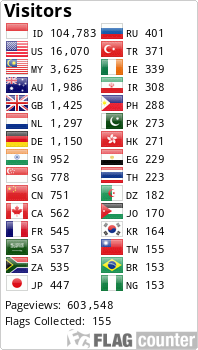TAFSIR MISOGINIS AYAT-AYAT IDDAH: Analisis Sosiologis Ayat-Ayat Iddah Menurut Mufassir dan Ahli Fiqh
 Abstract views: 618
,
Abstract views: 618
,
 PDF downloads: 835
PDF downloads: 835
Abstract
One issue that arises today is about the waiting period for women, either died or idda divorce waiting period. Because the prescribed period (of waiting) for women in a relatively long period of time. If that be the reason for the length of the prescribed period, one of which, is to determine about the possibility of the women were pregnant or not then with modern technology can already be known to women pregnant or not without having to wait for several months. This is the theme of the discussion in this article because the waiting period (iddah) for women under the spotlight from opponents who take the position of Islamic law (the issue of the prescribed period for women) tend to be unreasonable. In addition glare comes from the feminist questioning the prescribed period like women only, while the male is no such thing prescribed period and may not directly get married after the divorce. This will bring up the notion that the verses of the Koran that talk about issues iddah tend misogynistic and view women are lower than men's. By combining the approach of islamic law and the interpreter opinion of classical and modern would be associated with the formulation of Islamic law more reasonable and acceptable, especially for opponent.
Downloads
References
Ahmad bin Hanbal. Musnad al-Imam Ahmad bin Hanbal. t.tp: Muassasah al-Risalah, 2001.
Arsal. Tafsir Ayat-ayat Hukum. Bukittinggi: STAIN Bukittinggi Press, 2007.
Binjai, Abdul Halim Hasan. Tafsir Al-Ahkam. Jakarta: Kencana, 2011.
Bukhari, Muhammad bin Isma’il Abu Abdullah al-. Shahih al-Bukhari. t.tp: Dar Thuq al-Najah, 1422 M.
Dimasyqi, Abul Fida Ismail Ibnu Katsir al-. Terjemahan Tafsir Ibnu Katsir. Bandung: Sinar Baru Algesindo, 2000.
Husaini, Abu Bakar Muhammad al-. Kifayatul Akhyar. Surabaya: Dar al-Ilm, t.t.
Khan, Musthafa Sa’id al-. Atsar al-Ikhtilaf fi al-Qawaid al-Ushuliyah fi Ikhtilaf al-Fuqaha’. Beirut: Muassasah al-Risalah, 1982.
Malik bin Anas. Muwaththa’ al-Imam Malik. t.tp: Mu’assasah al-Risalah, 1412 H.
Balkhi, Abu Hasan Muqathil bin Sulaiman bin Basyir al-Azdi al-. Tafsir Muqathil bin Sulaiman. Beirut: Dar Ihya’ al-Turats, 1423 H.
Naisaburi, Muslim bin al-Hajjaj Abu Hasan al-Qusyairi al-. Shahih Muslim. Beirut: Dar Ihya’ al-Turats al-‘Arabi, t.t.
Rasjid, Sulaiman. Figih Islam. Bandung: Sinar Baru Algensindo, 1994.
Sabiq, Sayyid. Fikih Sunnah. Bandung: Alma’arif, 1987.
Shabuni, Muhammad Ali al-. Rawa’i al-Bayan Tafsir Ayat al-Ahkam min al-Qur’an. Jakarta: Dar al-Kutub al-Islamiyah, 2001.
Shihab, M. Quraish. Tafsir al-Misbah; Pesan, Kesan dan Keserasian al-Qur’an. Jakarta: Lentera Hati, 2002.
Syafi’i, Muhammad bin Idris al-. Al-Umm. Beirut: Dar al-Fikr, 2002.
________________ Musnad al-Syafi’i. Beirut: Dar al-Kutub al-‘Ilmiyah, 1400 H.
Turmudzi, Muhammad bin ‘Isa bin Tsaurah bin Musa bin Dhahhak al-. Sunan al-Turmudzi. Beirut: Dar al-Gharb al-Islami, 1998.
Umar, Nasaruddin. Persepektif Jender Dalam Islam. Jakarta: Jurnal Paramadina, 1998. Vol. 1, No. 1.
Yaggo, Chuzaimah T. dan Hafiz Anshary AZ. Problematika Hukum Islam Kontemporer. Jakarta: Pustaka Firdaus bekerja sama Lembaga Studi Islam dan Kemasyarakatan (LSIK), 1994.
Yusuf, Muhammad. “Relevansi Pemikiran Ulama Bugis dan Nilai Budaya Bugis; Kajian tentang ‘iddah dalam Tafsir Berbahasa Bugis”. Analisis, Volume XIII, Nomor 1, Juni 2013.


_jpg_700_.png)














